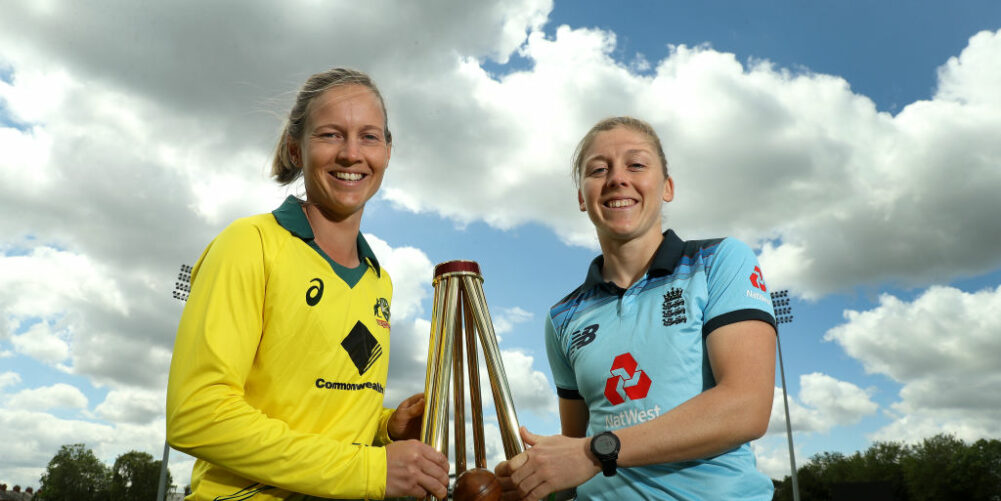Over the years, one of the great unanswered questions of English women’s cricket remains how much weight the coaches in the set-up at Loughborough really place on performances in the Women’s County Championship.
In men’s cricket, the system seems fairly straightforward: a good showing at domestic level is sometimes enough to see you called up into the England squad; if you fall out of form, you are sent back to your county to try and reestablish yourself by scoring runs there, away from the spotlight. But the men’s county set-up is professional, a competition which will challenge the best players week after week. In the women’s set-up, those players who are there or thereabouts in terms of national selection are generally way ahead of their amateur counterparts, who have only limited access to high-quality coaching, and little time to train. How much store, then, to set by a century here, or a five-fer there?
Another key difference is that the England women’s coaches rarely get to see county performances – with no TV coverage, the system relies on them attending matches in person; and while Mark Robinson has been spotted at some Sussex home games (his local stomping ground), he is generally too busy to get to many of the matches. Of course he will be keeping pace with the scorecards: but much will be missed that way. I have sometimes semi-facetiously wondered whether Robinson reads this column, or peruses my website CRICKETher, to find out which players have shone?
I was pondering the question yet again recently, after England announced their squad for the Ashes Test. With their switch to the longer format mid-series, having lost all three ODIs and suffered a drubbing in the third match at Canterbury, it seemed as good a time as any for some experimental selections. Based on recent domestic form, there were at least two plausible candidates: Surrey’s Bryony Smith, whose excellent season at the top of the order for Surrey culminated in a recent century in the T20 Cup; and Middlesex’s Sophia Dunkley, who hit two WCC hundreds this season and was overall leading run-scorer, with 451 to her name. Neither, apparently, had done enough to impress Robinson enough to earn a call-up.

None of this is new. Over the last 10 years, county stalwarts like Surrey opener Kirstie White and Yorkshire leg-spinner Katie Levick have consistently topped the run-scoring and wicket-taking tallies in the County Championship; yet neither have had a look-in when it comes to international selection. It’s interesting to reflect on the barriers which a more professional, centralised set-up have put in place for players seeking to break into the England side; as well as the opportunities it has created for a lucky few.
On the other hand, one player who was called up to the Test squad – left-armer Kirstie Gordon – effectively only came to Mark Robinson’s attention because of her consistent performances for Nottinghamshire last summer. She finished as leading wicket-taker in the County Championship, was called up to represent Loughborough Lightning in the Super League, and by November she was proudly sporting an England shirt in the World Twenty20 in the Caribbean. A (deserved) meteoric rise indeed – but in the current set-up, sadly an all-too-rare one.
That current domestic set-up was brought to an end last Sunday with the rearranged Championship match which took place between Somerset and Devon at Wombat CC, after the original fixture was rained off back in May. It was an interesting decision by both sides to reschedule the game, given that – with no relegation next season at stake – the final result was purely academic. With no incentive to rearrange games, it has been all-too-rare in years gone by for teams to do so. Possibly Somerset captain Sophie Luff was keen to make sure the match went ahead partly because of the injustice her side suffered six years ago, when their Division 1/2 play-off against Essex was rained off and not rearranged, meaning Somerset topped division two but failed to even get the chance to secure promotion.
As it turned out, it was Devon who benefitted points-wise from this rescheduling, winning by two wickets to lift themselves to fourth position in the final standings. With Somerset bowled out for 137, Devon looked on course in their chase at 51-1 after 11 overs, but a flurry of wickets from Somerset’s Nicole Richards (who finished with 4-22) culminated in a nervy conclusion – Devon getting home thanks to an unbeaten 28 from number eight Becca Silk.
It seems fitting that Luff, 25, who has represented Somerset since the age of 12 and now serves both as county captain and Women and Girls Performance Head Coach, was involved in the final ever WCC fixture. The future for players like her may be unclear, but Luff – like all those other county stalwarts who always played for love, not money – has done her county proud.
RAF NICHOLSON / Getty Images












